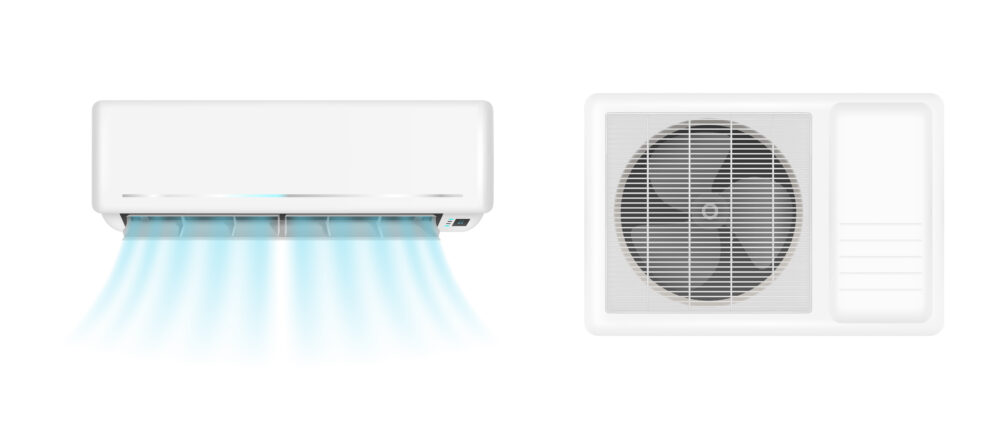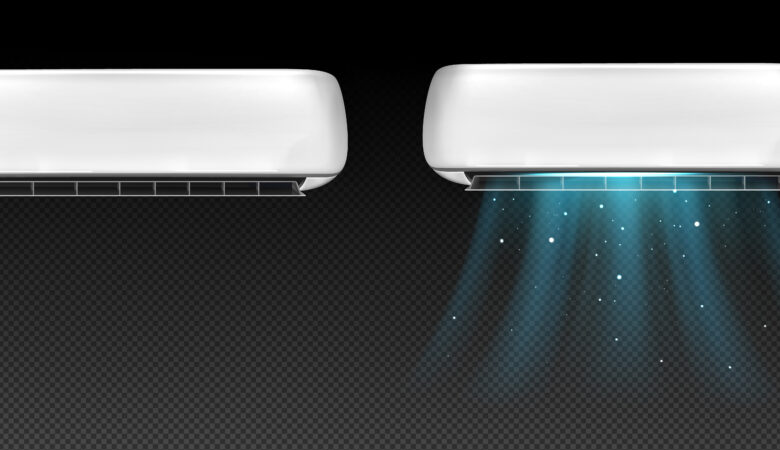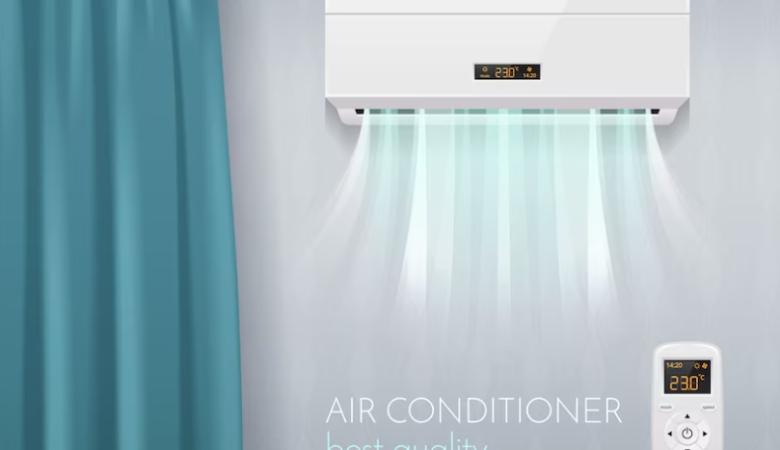This summer, if you’ve found that the ceiling fan isn’t providing enough relief from the heat, you’re not the only one. Considering that summer has only just begun and the temperature is only going to continue to rise over the next few months, investing in a brand-new air conditioner should probably be one of your highest priorities. But how do you know which air conditioner for home use or office use fits your needs? The following is a simple guide that will cover the fundamentals of selecting the best air conditioner for your needs.
Alternating current air conditioners are broken down into their various subtypes.
There are two different varieties of air conditioners, and you may have encountered both of them at places like libraries, cafes, residences, hotels, and other similar establishments. These are split and window air conditioners.
-
Window Air Conditioner for home use
A Window AC is a single, rectangular device that is easy to use and maintain. The fact that it can be obtained at a lower cost is the primary benefit. This is because all of the components are contained within a single chassis, hence reducing the likelihood that issues may arise as a result of external influences.
However, window air conditioners are notorious for being loud, and installing one requires a wall to be at least 9 to 12 inches thick; hence, they are not suitable for every home. Window air conditioners have a limited capacity, so they are not necessarily the ideal option for particularly large rooms.
-
Split Air Conditioner for home use
As the name suggests, a split air conditioner comes with a body that is divided in two, like a sandwich. There is a unit that is installed inside your room called the internal unit, and there is also a unit that is placed outside the wall called the exterior unit. The fact that these two units are independent and only connected through pipes drives up the costs of installation and maintenance.
In comparison to Window ACs, Split ACs come in at a higher price point but produce far less noise. Additionally, they can be mounted on any wall, even those with a thinner construction, therefore a split air conditioner for family use may be ideal. You can browse our website to know more about split air conditioners online to get familiar with the market and typical Ac prices.
-
Capacity
The capacity of the air conditioner is the most significant factor that needs to be determined before purchasing one. Depending on how much cooling capacity you need, the air conditioner that you purchase could either fall short of your expectations or be an unnecessary luxury.
Considerations to make include the size of the room, the temperature in the room’s general vicinity, and the proportion of the room’s walls that are directly and unobstructedly illuminated by sunlight from the exterior.
The capacity of an AC can be determined by using the term “tonnage.” You might be familiar with the expressions one tonne AC or one and a half tonnes. When discussing air conditioners, one tonne refers to the amount of energy that is necessary to completely convert one tonne (1,000 kilogrammes) of ice into water. One tonne equals one tonne.
You might be fine with a one-tonne air conditioner for smaller rooms, but for living rooms, small offices, and other larger areas, you might need a 1.5-tonne air conditioner instead.
-
Rating for Energy Use
Because air conditioners are known for adding significant amounts to your monthly electricity bill, many people only use them when it is necessary to do so. However, regardless of how frequently or infrequently you intend to use the air conditioner, you may keep these expenses under control by purchasing a unit that has a high energy efficiency rating.
Every air conditioner will be given a rating out of five stars by the Bureau of Energy Efficiency. The rating given here will tell you how effectively your air conditioner operates in terms of its power efficiency. Always make an effort to choose a model with five stars, as these will help you achieve the lowest possible usage expenses in the long run.
-
Inverter versus non-inverter ACs
When it comes to air conditioners, you may find both inverter ACs and non-inverter ACs. An inverter is what turns direct current, also known as DC, into alternating current, also known as AC.
The compressor in non-inverter air conditioners operates at a predetermined speed. You have the option of turning it on or off. During operation, the compressor will turn on and operate until the temperature in your room reaches the desired setting, at which point it will turn off. However, it will turn back on and begin cooling the room as soon as the temperature begins to rise again.
Inverter air conditioners change the alternating current (AC) coming from your wall socket into direct current (DC), which is then converted back into AC to power the appliance’s compressor. The goal of this is to make it possible for the compressor to perform with a greater degree of control, which will allow users to more effectively and efficiently manage temperatures.
Inverter air conditioners are more expensive, but they maintain temperatures more accurately and make significantly less noise. Consider purchasing an inverter air conditioner if you want to use the unit nonstop throughout the year and if you believe it will be a good investment for you in the long run. If you just intend to use the equipment occasionally, a standard air conditioner that does not have an inverter can be sufficient for your needs.
Other characteristics
There are some more features that you could be looking for, and if you seek those, you can further limit your search results. Certain air conditioners will come equipped with filters, which will make it easier to maintain clean air while still maintaining a comfortable temperature.
About Livpure
To sum it up, the best air conditioner for home use depends upon your needs and circumstances. On our website, you can browse and buy livpure air conditioners that come in a wide range based on your requirements to find the best air conditioner for home use.
Also Read: Looking for Air Conditioners Online? Here Are The Best Picks








